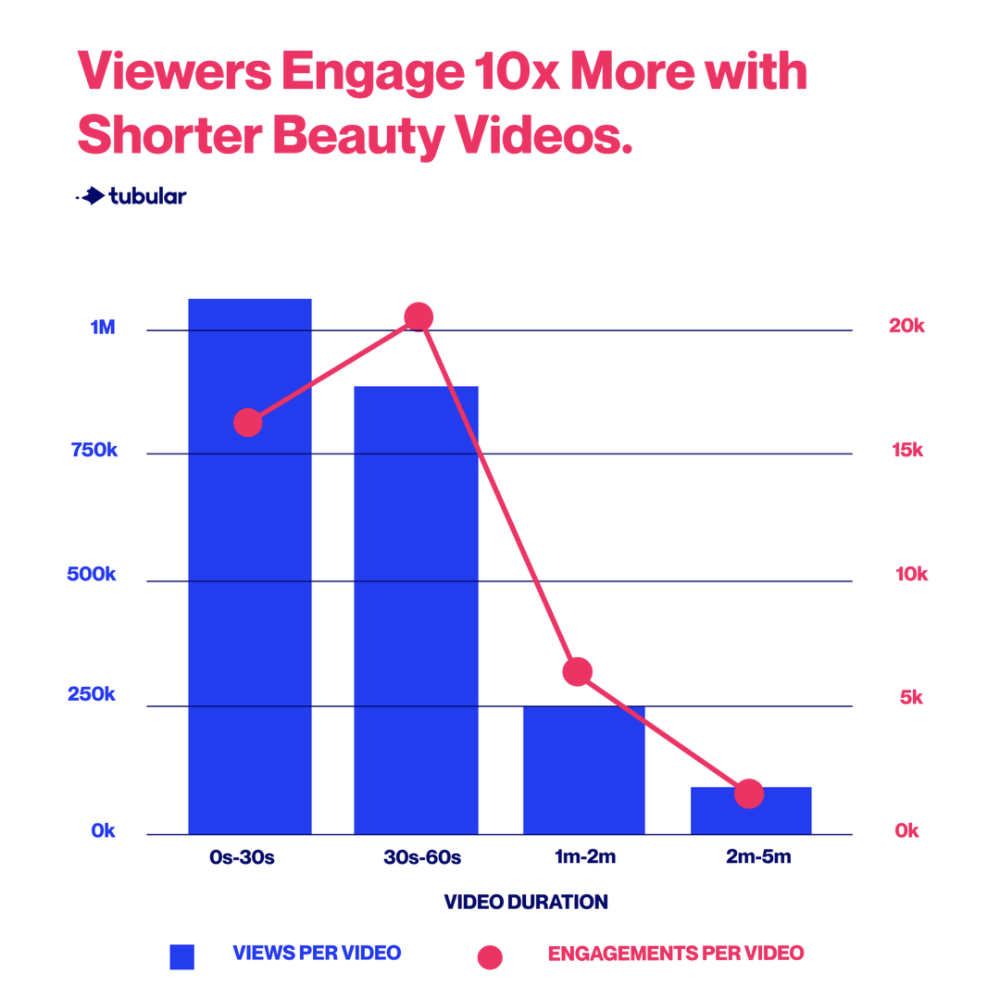How brands + influencers embrace audiences with authenticity.
Somewhere between Eva Longoria’s L’Oreal TV commercials and Instagram filters that give you lip injections — the beauty industry became jaded. With mounting concerns about social media’s adverse mental health effects regarding comparison, photoshop, and unrealistic beauty standards, change was imminent.
The beauty of social media is that it is a conversation with its users, as opposed to traditional advertising. Audiences’ evolving viewing preferences have led marketers, brands, and media companies to understand that people want to feel represented in all cultural images of beauty. Cue the #RealBeauty movement reshaping the airbrushed image of beauty and combating mental health issues worldwide.
Let’s look at how influencers, emerging brands, and enterprises are responding to audiences’ desires for authenticity.
1. Influencers – The OG Beauty Rebels
Beauty influencers have long since been inclusive ambassadors and social commentators. Their voices have demanded that beauty brands expand color palettes, step up sustainable efforts, and feature models of all shapes, sizes, and colors.
Nabela Noor is a Muslim author, beauty influencer, blogger, and activist who averages + 250k views monthly. Her mission is to advocate for women of all colors, shapes, and sizes, as can be seen in her children’s book “Beautifully Me.”
Noor’s video content reaches far beyond traditional beauty influencer videos. She also creates lifestyle videos, DIYs, and more, which is why brands like GrubHub, Capital One, and Fabletics partner with her.
The right influencer can give brands a peek into emerging trends, access to adjacent audiences, and act as brand ambassadors. Tubular can help unlock the true value of an influencer with insights that go beyond subscribers and likes.
See how non-traditional beauty influencers are making their mark in this graph from our latest Beauty Report:
2. Innovative Brands Accelerate Trends
Clean ingredients, sustainably made, and exceptionally inclusive. Emerging boutique makeup brands are making moves. Enterprise brands, take note.
ILIA is an ethically made makeup brand that also prioritizes skincare. Their social media earned views grew +200% in 2020. And while nearly every other makeup company struggled to see any revenue growth during the pandemic, ILIA sales soared nearly 400%, according to founder Sasha Plavsic. In short, they’ve taken the beauty world by storm.
Scrolling on Instagram Reels, you might have come across sponsored beauty ads that look similar to unpaid videos. That’s because ILIA evolved user-generated content into advertisements.
The footage shows older women giving short-clip makeup tutorials in their selfie cameras. Authentic, intriguing, and totally genius. Tubular Audience Ratings insights tell us that short-form content is performing well for beauty content.
The low-budget-casual vibe helps viewers trust that there isn’t tons of photoshop, editing, and production happening behind the screen. Poor-quality makeup doesn’t typically sit well on more fragile skin types, indicating that the product is well made.
Without a shade of doubt, ILIA does influencers right. Plavsic shared in an interview that “it’s about making it more of a partnership, and you have a respectful relationship with that person to be the ambassador to your brand.”
With Tubular’s eCommerce behavior tools, brands can understand what influencers’ audiences are most likely to watch and purchase and make the most informed partnership decisions – even outside of beauty categories.
3. Name Brands Become Social Advocates
Dove has been at the forefront of real beauty talks for several years, incorporating models of different shapes, sizes, and ethnicities — but in 2021, they’ve addressed current issues head-on.
In this “Reverse Selfie” ad, audiences see the layers of photoshop, makeup, and edits peeling away until we are faced with the look of despair on a young girl’s face. There’s no way around it; Dove is critiquing the unrealistic beauty standards perpetuated by culture and social media while also redefining our standards of beauty.
This video locks in relevance during the closing moments when the screen reads “have a selfie talk today,” encouraging individuals to take action. The video attracted over 2M views across YouTube and Instagram.
Tubular data reveals that brand-created content has a sweet spot for engagement. At the 60 second mark, beauty brands peak at an average of 6k engagements per video. The Reverse Selfie video hits that 1-minute mark, and engagements fell right around that average.

In 2021, Influencers and brands have shown us that you can’t just put a few plus-size ethnic models in beauty campaigns and call it activism. Today’s most innovative beauty brands are cannonballing into social commentary by projecting their brand’s values into their media campaigns and creative.
For decades, the beauty industry sold products by preying on women’s insecurities — but today, beauty audiences, influencers, and brands are changing the paradigm. Authenticity is an emerging viewing preference across every industry in social video, and forward-thinking companies are following suit.
Modern audiences care about making ethical purchases from brands that authentically portray beauty and create sustainable, clean products. Watching marketing strategies shift toward celebrating raw beauty has been monumental.
Download our Beauty Report to unlock our insights on content + influencer strategies.